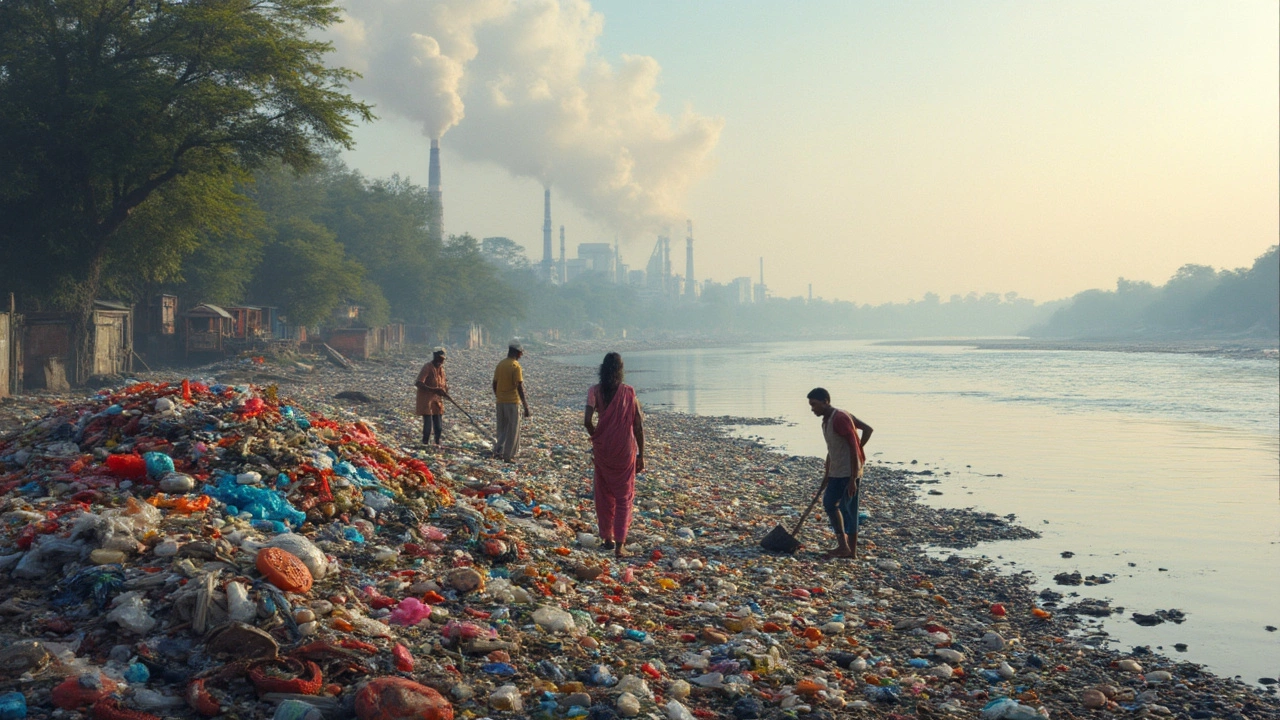Marine Environment – Why It Matters and What You Can Do
Every day the ocean faces new challenges, from plastic litter to climate shifts. Understanding these issues helps you make smarter choices and supports companies that are trying to protect the sea. Below you’ll find a quick guide to the most important topics and how Urban Polymers India fits into the picture.
First, let’s talk about why the marine environment is a big deal for anyone who uses plastic. The ocean absorbs a huge amount of the waste we create, and even tiny micro‑plastics end up in fish, seabirds and the food chain. That means the impact isn’t just on marine life – it reaches our plates, too.
Plastic Pollution and the Ocean
Plastic makes life easier, but once it’s tossed into the water it can linger for centuries. The posts under this tag include data on which countries and industries waste the most plastic, and what you can do to cut down. For example, the "Who Wastes the Most Plastic?" article breaks down the top polluters and offers simple steps like choosing reusable packaging and supporting brands that use recycled material.
Another key point is how manufacturing choices affect the marine environment. When factories switch to lightweight, recyclable polymers, the amount of waste that reaches the sea drops dramatically. The "What Is the Biggest Expense in Manufacturing?" post shows how cutting material costs can also reduce waste, creating a win‑win for profit and the planet.
Sustainable Practices from Urban Polymers
Urban Polymers India is committed to reducing its ocean footprint. We use state‑of‑the‑art technology to produce durable, recyclable products that last longer and stay out of the sea. Our focus on sustainability means we work with suppliers who follow strict environmental standards and we invest in research for biodegradable alternatives.
Our blog often highlights how new innovations, like bio‑based plastics, can replace traditional resin in packaging. These advancements not only lower carbon emissions but also break down faster if they ever end up in the water.
If you’re curious about the latest trends, check out the "India's Chemical Shortages 2025" and "Technology Booming in India" articles. Both discuss how supply‑chain shifts are pushing companies toward greener raw materials, which directly benefits the marine environment.
What can you do right now? Start by swapping single‑use items for reusable ones, support brands that disclose their plastic usage, and spread the word about marine‑friendly practices. Small actions add up, and they motivate manufacturers to keep improving.
Remember, the health of the ocean is linked to the choices we make on the ground. By staying informed through this tag, you’ll get the latest stats, practical tips, and stories of companies like Urban Polymers that are working to keep our seas clean.
Plastic in the Ocean: Which Country Leads the Pack?
This article takes a closer look at which country is responsible for dumping the most plastic into the ocean and how this problem affects everyone. You'll get numbers, reasons why it's happening, and what role plastic manufacturers play. Find out why some countries struggle more with plastic waste and what can be done to fix it. Expect real stats, practical tips, and relatable stories. It's all about understanding the full picture of plastic pollution right now.
The Cleanest Ocean: An Exploration Into Pristine Waters
Oceans have become increasingly polluted due to the pervasive presence of plastic waste. In the quest to preserve marine life and our environment, identifying the cleanest ocean is crucial. This article delves into the current state of our oceans, highlighting the factors contributing to their cleanliness. Tips on supporting ocean conservation efforts are provided to encourage individual responsibility.

